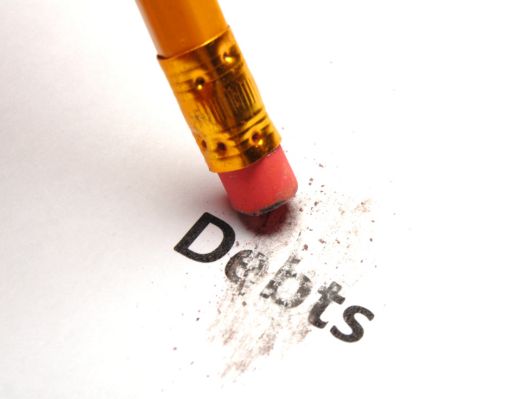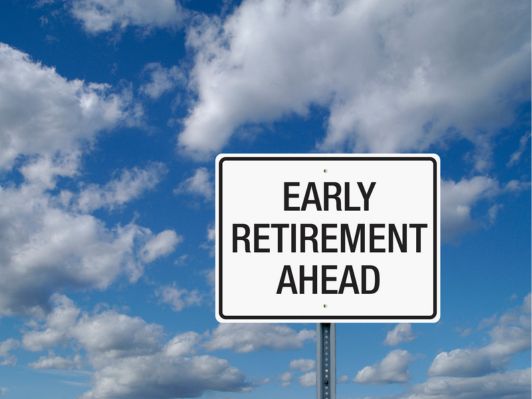If you’re reading this, chances are you’re eager to know how to retire early with no or little money in the UK.
You want to take control of your finances. You want to prepare for a future filled with leisure. Relaxation. And financial independence.
If so, you’re at the right place!
Perhaps you’re tired of the daily grind and long to escape the 9-to-5 routine? Or you may dream of travelling the world? Spending more time with your loved ones? Or pursuing a passion you’ve put on hold?
The good news is that retiring early is entirely possible. But for this you’ll need to learn how to save money and plan for your retirement income.
Are you up for the challenge to achieve financial freedom before reaching your state pension age?
Before we dive into how to retire early with little money in the UK. We need to talk about the pros and cons of early retirement.
Table of Contents
Pros of retiring early
- You’ll get more time to pursue your passions and hobbies
- You’ll have time to explore new career paths or volunteer work
- You’ll have less stress and more time for self-care and wellness
Cons of retiring early
- You’ll get less time to save money for your retirement. This might lead to a potential shortfall in retirement savings.
- If you retire before you reach the state pension age, you may receive a reduced pension income.
- Your retirement strategy lead to potential boredom or lack of purpose if not planned perfect.
But don’t let the cons stop you from pursuing your dream of an early retirement plan. With the right mindset and technique, you can overcome these challenges and live a fulfilling life after retirement.
So, let’s get started on the roadmap of retiring early with little money in the UK.
9 steps to retire early with little money
1. Pay off debts early

The first step towards your retirement plan is to pay off your debts early. It’s essential to eliminate any outstanding debts, credit card bills, short term loans, cash loans, etc., that might accrue high-interest rates.
It’s crucial because these debts can quickly accumulate. It can make it difficult to save money for your retirement pension pot.
The best approach is to create a plan to pay off your debts systematically. Start with the highest interest-rate debts first.
You can look for ways to cut back on expenses or increase your income by working part-time and setting financial goals. And with this extra money, you can pay off your debts quickly, and soon you’ll be on your way to a debt-free life.
2. Estimate your total cost over retirement
Another important step towards retiring early is understanding your expenses after retirement. This means closely examining your current lifestyle and costs and projecting how they might change after you retire.
It would help if you considered expenses such as housing, food, transportation, healthcare, and entertainment. Will you need to downsize your home or move to a more affordable location? How much will you require to budget for healthcare expenses, such as insurance premiums and out-of-pocket costs?
Once you have a fair idea of your post-retirement expenses, you can start budgeting your finances. You can also determine how much money you’ll need to save to support your retirement lifestyle.
3. Calculate the total income you’ll receive from fixed deposits and other securities
While planning your retirement, it’s essential to consider all potential sources of income. Include fixed deposits and other securities.
Investments like your fixed deposits, pension contributions, stock market investments, etc., can provide a reliable source of income in your early retirement savings. They can be an effective way to generate passive income. They might not require significant ongoing effort or maintenance.
Consider the interest earned and potential capital gains when calculating your income from these investments. Fixed deposits, for example, offer a fixed interest rate. Other securities, such as stocks and bonds, provide variable returns.
4. Determine where you are right now financially
Before you can begin planning for early retirement: it’s essential to take a close look at your current financial situation. Your current financial situation will help you understand where you stand, your goals, and how to achieve them.
You can start by taking a detailed view of your income, expenses, and assets. This can include everything from your salary. And should include savings accounts to your debts, monthly bills, and even income tax returns. Be sure to include any investments, such as stocks or real estate, that you may have.
You can even take the help of a financial adviser for this. They can potentially help you save as much money as possible to retire early.
5. Work out your basic income needs in retirement
Once you understand your current financial situation, consider your short and long-term goals. Be specific about your goals, and plan how you will achieve them. Take the time to understand your current financial situation. You can create a plan. And you can figure out easy ways to save money that will help you attain your goals and retire comfortably.
Keep in mind that your lump sum should also account for any unexpected expenses that may arise. This could include emergency medical bills, home repairs, or unexpected travel costs. Planning for these expenses ahead of time, can ensure that you have the financial security to weather any storm that comes your way.
6. Calculate what income you can achieve in retirement
Creating a savings and investment plan is a crucial step towards achieving your goal of retiring early with little money. The following strategies to help you get started:
- Set a realistic savings goal
- Establish a budget
- Start saving early
- Consider investing in a retirement account
- Diversify your investments
- Be disciplined about saving
- Re-evaluate your plan regularly
- Join a fire movement (financial independence retire early) to save more and spend less
Remember, saving and investing for retirement is a long-term process that requires discipline and patience. By creating a plan and adhering to it, you can achieve your goal of retiring early with little money.
7. Keep money aside for healthcare
When planning for early retirement, it’s essential to consider the potential costs of healthcare. You may be healthy now, but unexpected medical expenses can arise anytime.
Despite UK residents having access to free healthcare, it’s vital to plan for the what ifs.
When estimating your healthcare costs, you can start by considering your family history, current health status, and pre-existing conditions. Also, research the cost of healthcare services in your area to better understand the expenses you may face.
Nevertheless, healthcare expenses in your retirement budget. Additionally, build an emergency fund to cover unexpected healthcare expenses. It’s essential to have a safety net to protect yourself from potential financial hardships. Finally, be sure to review your plan regularly and make changes as necessary.
8. Be consistent
Being consistent is very crucial when it comes to turning your dream of early retirement into a reality. This means consistently setting aside a portion of your income for savings and investments and regularly reviewing and adjusting your financial plan as needed.
You can do so with the help of budgeting apps and build a habit of saving and investing. This will build up your retirement savings and ensure you are on track to reaching your goals.
Another way to stay consistent is to stop spending on unnecessary things or taking on short-term loans that could disrupt your financial plan. It’s essential to remember that every financial decision you make can impact your early retirement plan, so it’s necessary to stay focused and disciplined in your spending habits.
9. Pay off your mortgage
Your mortgage is likely one of the most significant expenses you have each month. Paying it off can free up a considerable amount of money you can then redirect toward your early retirement savings.
It may seem daunting, but paying off your mortgage is achievable with planning and discipline. One option to pay off your mortgage faster is to make additional payments towards the principal balance. Doing so can reduce the interest you owe over time, ultimately shortening the length of your mortgage and saving you money in the long run.
If you are renting or living in council housing, paying off the mortgage probably won’t be one of your biggest concerns. However, if it is, before you decide to pay off your mortgage early, it’s essential to consider your overall financial situation.
For example, if you have other high-interest debt, paying that off may be more financially advantageous before focusing on your mortgage.
Conclusion
Retiring early with little money in the UK is possible with the right mindset, planning, and execution. Before taking the leap into early retirement:
- Consider the pros and cons.
- Determine your expenses after retirement.
- Create a savings and investment plan.
By taking these steps, you can retire early and live a fulfilling life in retirement. Remember, it’s never too late to start planning for your future; every small step toward financial independence will add up in the long run.
FAQ
Can I retire at 62 with little money in the UK?
To retire at 62 with little money in the UK, you’ll need to start saving and investing as early as possible, pay off debts, and consider downsizing your expenses. Simply put you have to follow the above mentioned steps and you can achieve this goal.
Is it okay to retire at 40?
Yes, it’s okay to retire at 40 if you have a substantial amount of savings and investments that can support your living expenses for the rest of your life.
Can I retire at the age of 50 with 1 million?
Yes, you can retire at 50 with 1 million pounds, provided you have a solid financial plan and budget that accounts for inflation and unforeseen expenses.
What is the quickest way to retire early?
The fastest way to retire early is to save money aggressively and invest wisely, cut back on your unnecessary expenses, and have a clear plan that accounts for potential risks and setbacks.
Can I claim my state pension at 55?
No. The earliest age you can claim your state pension in the UK is 66, and it will likely increase in the future due to changes in life expectancy and government policies.
Disclaimer: The information given above is provided for reference only. This is not financial advice.

